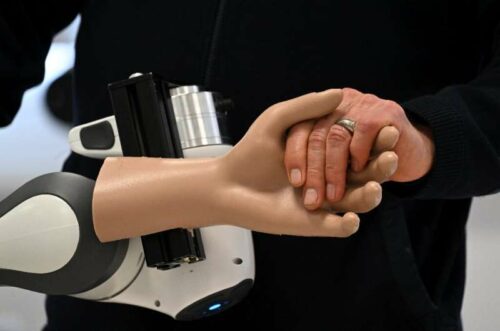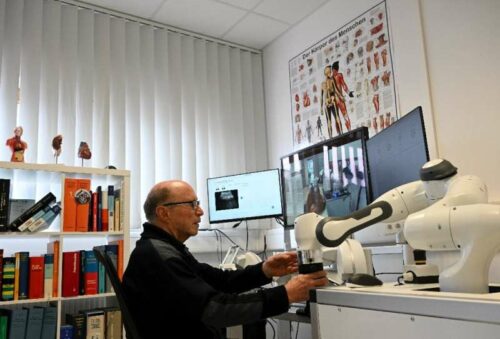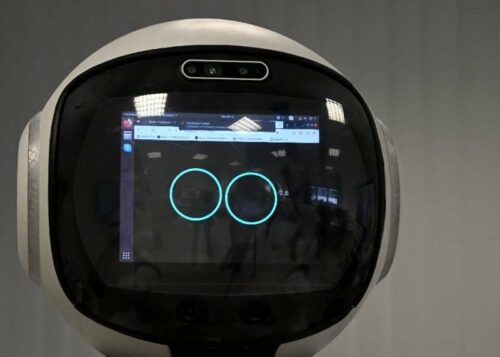Researchers have developed a robot that can take care of patients by diagnosing and providing personalized help like meals and drinks.

Researchers are looking into psychology, geometry, physics and various other fields to create algorithms for robots to adapt to their surroundings and learn independently. They stand a chance in every field of technology, medicine, and even arts. And now researchers are looking forward to enabling them to provide care and treatments.
The white-colored humanoid “Garmi” does not look much different from a typical robot—it stands on a platform with wheels and is equipped with a black screen on which two blue circles acting as eyes are attached. But retired German doctor Guenter Steinebach, 78, said, “For me, this robot is a dream.”
Not only is Garmi able to perform diagnostics on patients, it can also provide care and treatment for them. Garmi is a product of a new sector called geriatronics, a discipline that taps advanced technologies like robotics, IT and 3D technology for geriatrics, gerontology and nursing. With the number of people needing care growing quickly and an estimated 670,000 caregiver posts to go unfilled in Germany by 2050, the researchers are racing to conceive robots that can take over some of the tasks carried out today by nurses, caregivers and doctors.

In the Garmisch laboratory, Steinebach sat down at a table equipped with three screens and a joystick as he got ready to test the robot’s progress. At the other end of the room, a researcher designated as a test model took his spot in front of Garmi, who poses a stethoscope on his chest—an action directed by Steinebach from afar via the joystick. Medical data immediately appears on the doctor’s screen.

Yet the challenge researchers face is not technical or financial. The question remains whether the patients will accept the robot or not. Researchers say that the patients will need to trust the robot and should use it like a smartphone.







